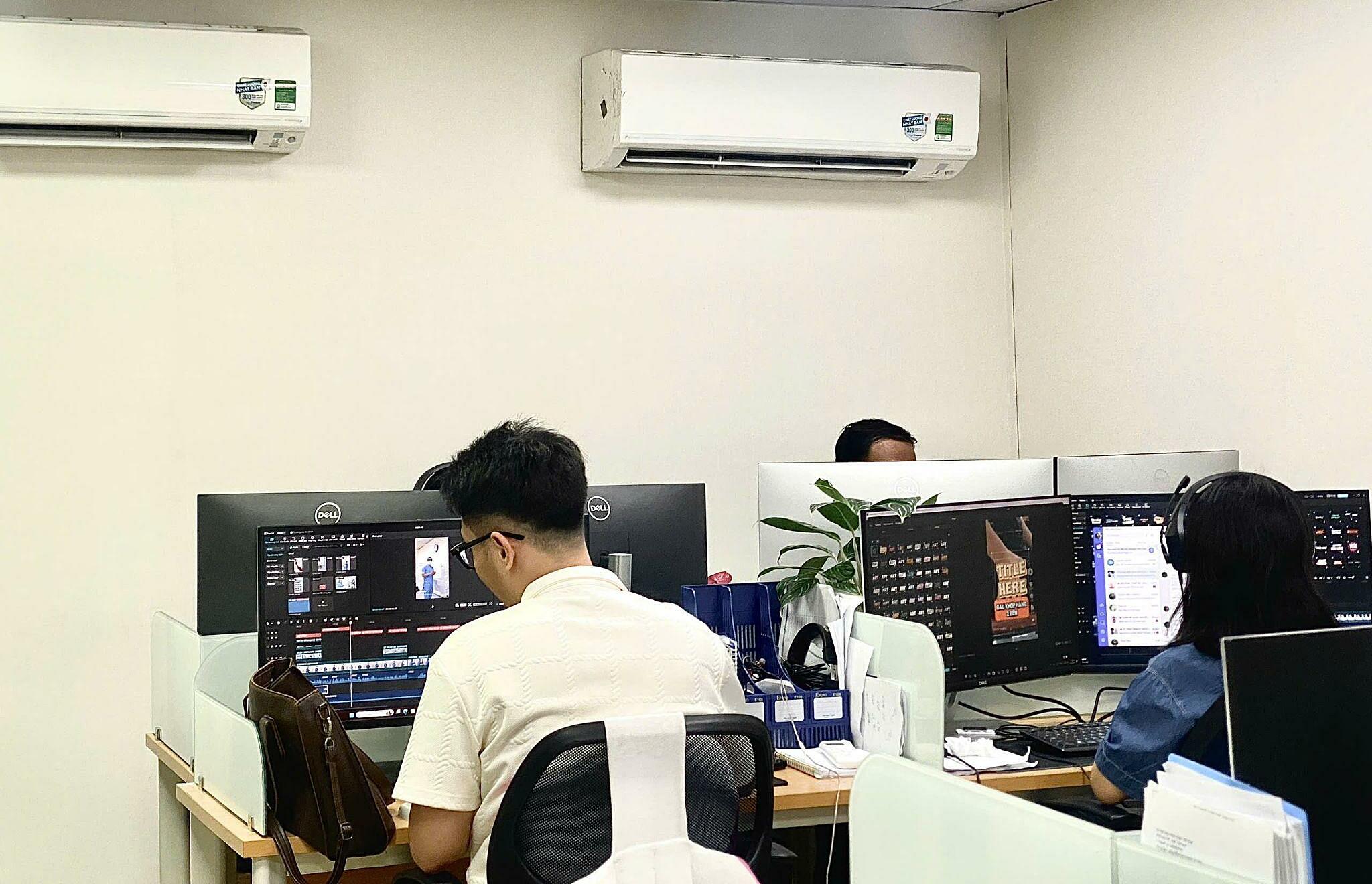Bronchitis is an inflammation of the bronchial tubes, causing a persistent cough, often accompanied by phlegm. It can manifest in acute or chronic forms. Acute bronchitis is primarily caused by viruses. Environmental pollutants, dust, or irritating chemicals can lead to chronic bronchitis.
Dr. Pham Thi Le Quyen, from the Respiratory Department at Tam Anh General Hospital in Hanoi, explains that enclosed air-conditioned environments provide ideal conditions for mold and bacteria to thrive. As air circulates through the AC system, it carries these microorganisms throughout the room, increasing the risk of respiratory illnesses. The constant flow of cold air also dries out the nasal and throat mucous membranes, weakening the body's natural filtration system and creating opportunities for viruses and bacteria to enter. Enclosed spaces with poor ventilation and high occupancy further increase the risk of airborne infectious diseases, including bronchitis.
 |
Prolonged air conditioning use can be harmful to the lungs. Illustrative photo: *Tam Anh General Hospital* |
Sudden temperature changes from hot outdoor conditions to cold indoor environments can also temporarily weaken the immune system. Office workers who frequently transition between these two environments may experience difficulty adapting, leading to sore throats, coughs, respiratory inflammation, and potentially bronchitis.
Acute bronchitis is usually not serious, and symptoms may resolve on their own within a few weeks. However, if it persists for more than three months without treatment, it can become chronic. At this stage, lung damage may become irreversible, leading to persistent coughing, shortness of breath, and respiratory failure.
According to Dr. Quyen, a common complication of bronchitis is pneumonia. When the immune system is weakened, viruses and bacteria can easily attack, causing the infection to spread to the alveoli and resulting in pneumonia. In severe cases, dangerous complications such as lung abscesses and sepsis can occur.
To reduce the risk of illness when working in air-conditioned environments, avoid setting the room temperature below 24 degrees Celsius and maintain a temperature difference of no more than 7 degrees Celsius compared to the outside temperature. Offices should ensure good ventilation and regular AC maintenance to prevent the buildup of mold and bacteria. Individuals should drink plenty of water, consume vitamin C-rich foods like oranges and lemons to boost their immune system, and limit their intake of iced drinks to protect the throat's mucous membranes. Maintaining distance from individuals exhibiting symptoms like coughing, fever, or flu-like symptoms in shared workspaces is also crucial to minimize the risk of infection.
Thu Giang
| Readers can submit questions about respiratory illnesses here for doctors to answer. |












